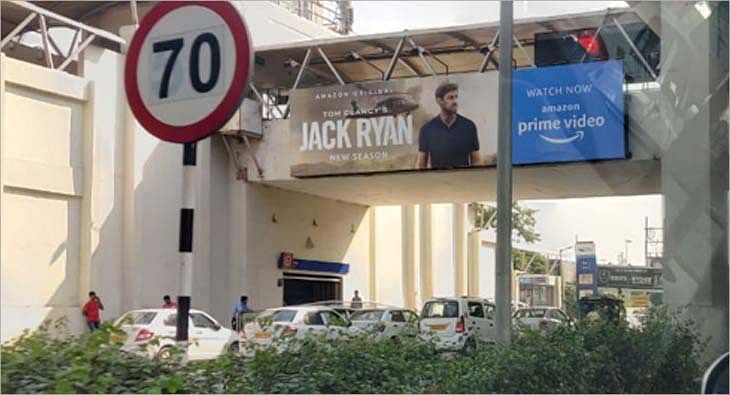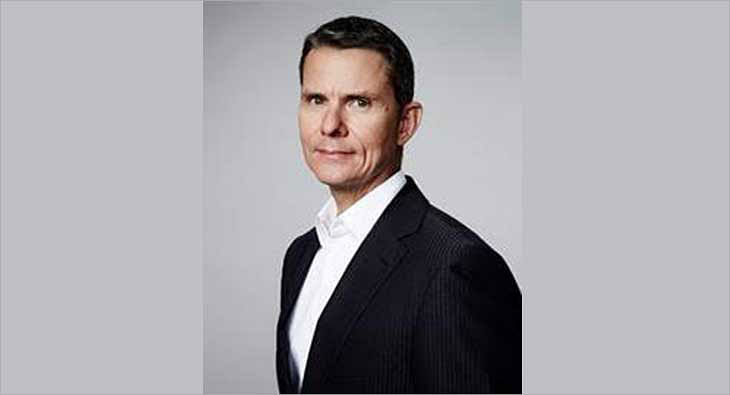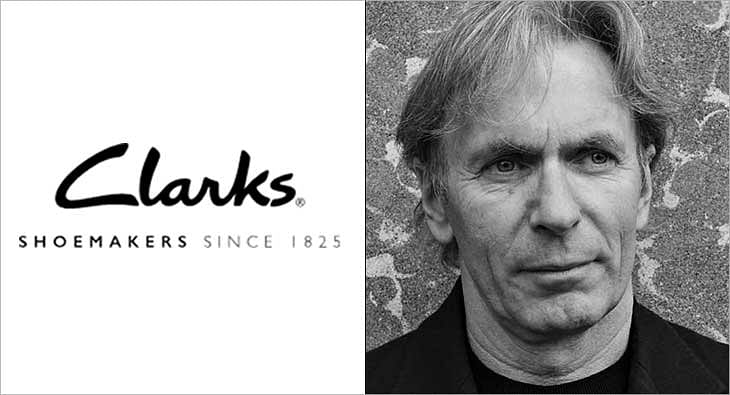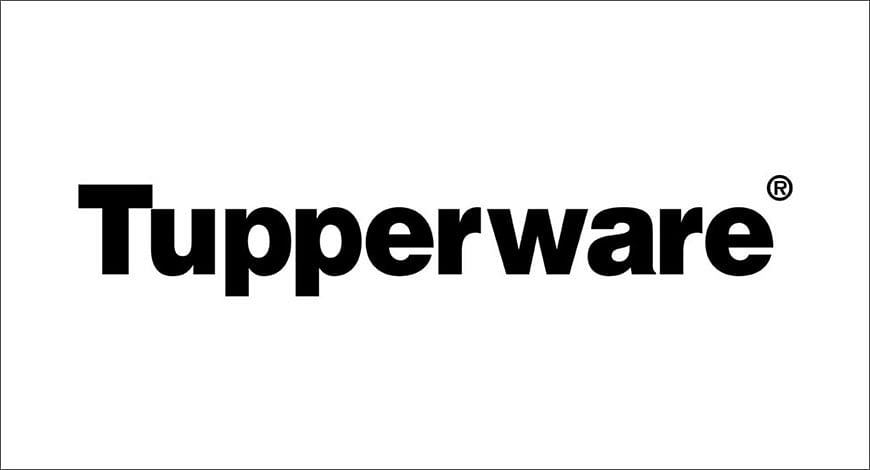International: Olympic advertisements that soared and sank
The advertising orgy that was the 2004 Summer Olympics has mercifully ended, and not a moment too soon for the bleary-eyed audiences exposed to 13,000 to 14,000 commercials during the 1,210 hours of coverage across the seven NBC Universal networks.

The advertising orgy that was the 2004 Summer Olympics has mercifully ended, and not a moment too soon for the bleary-eyed audiences exposed to 13,000 to 14,000 commercials during the 1,210 hours of coverage across the seven NBC Universal networks.
Perhaps the International Olympic Committee ought to award viewers medals for endurance—cast in iron, to symbolise the iron pants one needed to sit through so many spots. Or perhaps not, as it might only encourage marketers to mount even more invasive ad barrages in 2006 and 2008.
To be sure, there were entertaining commercials among the more than $1 billion worth of spots that ran from August 13 through Sunday night. But it is difficult to recall them in the aftermath of the exhausting, hucksterish din.
While it seemed that NBC Universal sought to schedule the commercial breaks in a manner that would not fatigue the audience, the rhythm of the interruptions—particularly on NBC, when as many as seven commercials sometimes appeared at a time—was perturbing, if not downright annoying.
Now it is time to award make-believe medals in a post-Olympics advertising review.
Some terrible commercials are getting the dreaded lead medal, for base (and debased) performance. Some commercials that fell short or rang false are receiving tin medals. And the commercials that were worth watching have earned gold.
Here are some examples, in alphabetical order, of how advertisers and agencies fared:
AT&T:
• A commercial for the AT&T Corp. featuring a talking Trojan horse, promoting its network security service, earns lead for being too reminiscent of the old “Saturday Night Live” skits featuring a talking “land shark,” voiced by Chevy Chase. Hmmm. Maybe that solves the mystery of where Chase has been.
• Agency: Young & Rubicam Advertising, part of the WPP Group
• BMW:
• A batch of commercials for BMW ranged from front-runners to also-rans, thanks to twist endings that soared or sank. A gold goes to a spot about a farmer who sells an early 1970s BMW abandoned in his barn to an automotive aficionado. Cut to the farmer behind the wheel of the brand-new Beemer he bought with the proceeds. The twist: He is dressed not in the posh driving togs typical of BMW ads but in his denim and flannel work clothes. A twist that did not work came in a commercial, set during a stormy night, that showed a BMW parked behind a tow truck on the side of a road. Two voices are heard saying, “It just died on me” and “Let me get you into town.” Then— you guessed it—the tow truck driver gets a lift from the BMW driver.
Tin
• Agency: Fallon Worldwide, part of the Publicis Groupe
Bush-Cheney ’04:
• “This Olympics, there will be two more free nations,” an announcer declared in a commercial from the Bush-Cheney re-election campaign, referring to Afghanistan and Iraq, adding, “Freedom is spreading through the world like a sunrise.” But politicising the games was as maladroit a move as any by Marion Jones, as evidenced by complaints from officials of the US Olympic Committee, the Iraqi soccer team and the Marketing Commission of the International Olympic Committee. They all urged that the commercial be withdrawn, charging that it misused the Olympics for partisan purposes. The campaign refused, saying the ad was simply presenting facts.
• Lead
• Agency: Maverick Media
• Chevrolet:
• Not only were most of the commercials for the Chevrolet division of the General Motors Corp delightful, but there were enough of them to offer variety amid the repetition. Spots for the Malibu Maxx shone by using children in a cute, but not cloying, fashion. The best commercial in the Chevy garage was a fanciful spot designating the 2005 Corvette as “the official car of your dreams.” Yes, the ad was withdrawn by GM after safety groups complained, but it was clearly set up as a fantasy, down to the words “This is a dream” superimposed on the screen.
• Gold
• Agency: Campbell-Ewald, part of the Interpublic Group of Companies
DHL:
• There were scores of commercials from Olympic sponsors and suppliers who sought to wrap themselves around the rings, but none so clever as those from the DHL delivery service, owned by Deutsche Post. How far will DHL go to help the athletes? Cyclists use a delivery truck to train, an archer uses a delivery box to store her arrows and DHL employees rush to cushion a long jumper’s return to earth with packing foam.
• Gold
• Agency: Ogilvy & Mather Worldwide, part of WPP
General Electric:
• The NBC Universal co-parent General Electric made ample use of its cross-marketing opportunities to sell other products and services during the games, in numerous commercials of varying quality, all by BBDO Worldwide, part of the Omnicom Group. One spot, using snippets of the 1966 film Fantastic Voyage to dramatise the gee-whiz aspects of a surgical navigation system sold by GE Healthcare, was the most outstanding, rating a gold. Another gold goes to a funny commercial for the company’s wind technologies, rewriting history to give new meaning to the term “Viking cruise.”
• A creepy commercial for GE Water Technologies merited a tin medal, depicting musicians performing Handel’s “Water Music” as — duh — water musicians.
McDonald’s:
• The offerings from the McDonald’s Corp ranged from piping hot to warmed-over. Commercials that inserted Ronald McDonald into Olympic events like diving and synchronised swimming were winsome winners.
• Gold
• Agency: Leo Burnett, part of Publicis
• Much less welcome were spots featuring neurotic characters fending off friends and co-workers seeking to share their meals of Chicken Selects . The off-putting actress in one commercial seemed to be channeling Rachel Griffiths as the odd ball Brenda from “Six Feet Under.”
• Lead
• Agency: DDB Worldwide, part of Omnicom
NBC:
• After watching the zillions of commercials promoting the new sitcoms “Joey” and “Father of the Pride,” which NBC hopes will anchor its prime-time lineup for the 2004-5 season, anyone expecting either series to be funny must also be expecting Paul Hamm to relinquish his gold medal.
• Lead
• Agency: The NBC Agency
Visa USA:
• As usual, Visa USA claimed its credit and debit cards are “everywhere you want to be”—and so were its commercials, whether you wanted them to be or not. Two spots, each with celebrities, deserved gold. One, for the Visa Check Card, spoofed the relationship between George Steinbrenner and the manager of his New York Yankees, Joe Torre.
• The other, for the new Visa Signature Card, used film of Frank Sinatra from his ring-a-ding-ding days warbling “I’ve Got the World on a String.” But a commercial that compared going without a Visa card to athletes’ forgetting vital equipment overreached considerably.
• Lead
• Agency: BBDO
Source: NY TIMES
Read more news about (internet advertising India, internet advertising, advertising India, digital advertising India, media advertising India)
For more updates, be socially connected with us onInstagram, LinkedIn, Twitter, Facebook Youtube & Whatsapp
Uber appoints Lucinda Barlow as Senior Director of Marketing for Asia-Pacific
Prior to this, Barlow was Global Marketing Director at YouTube
Uber has appointed Lucinda Barlow as Senior Director of Marketing for Asia-Pacific. Barlow will be based in Australia and will be responsible for the marketing of Uber products and businesses other than food delivery service Eats.
Prior to this, she was Global Marketing Director, YouTube. She worked for Google as head of corporate communications and public affairs and later as marketing director for Australia and New Zealand. She has also worked for Symbian, the company that created the operating system for Nokia’s range of smartphones.
‘Uber has had an extraordinary impact on the lives and livelihood of millions of people. I’m thrilled to join the Asia-Pacific team to help bring further mobility, freedom and opportunity in this exciting region,’ Barlow was quoted as saying.
‘She (Barlow) is uniquely positioned to lead Uber’s Asia Pacific brand, product marketing and reputation efforts, and support the continued growth of a stellar regional team,’ a press note from Uber said.
‘Lucinda brings over 20 years experience in internet, technology and mobile business across Asia, the United States and UK. From a former mission critical systems engineer at BHP, to leading YouTube marketing globally, to launching Symbian’s first office in China, to building marketing functions at two internet start-ups, Lucinda is an agile leader with an industry acclaimed track record of delivering impact at a staggering scale.’
Barlow wrote on twitter:
Incredibly excited for my next chapter. I'm joining Uber to lead marketing in APAC. This is a company and region I'm passionate about. https://t.co/IQB5cjfECq
— Lucinda Barlow (@lucindabarlow) October 9, 2019
Read more news about (internet advertising India, internet advertising, advertising India, digital advertising India, media advertising India)
For more updates, be socially connected with us onInstagram, LinkedIn, Twitter, Facebook Youtube & Whatsapp
WPP AUNZ's Switched On to join AKQA, Australia
The joint entity’s emphasis will be on rich, innovative brand storytelling throughout the entire customer journey
WPP AUNZ has announced its Sydney-based digital marketing and media consultancy, Switched On, will join the Australian arm of global innovation and experience design agency AKQA.
This union is in direct response to client interest and demand for comprehensive digital solutions that help define, find, connect and inspire customers across all brand interactions, from acquisition through to retention. The joint entity’s emphasis will be on rich, innovative brand storytelling throughout the entire customer journey, bringing clients’ long-term brand purpose to life whilst maintaining a laser focus on short term performance.
John Steedman, interim CEO WPP AUNZ said: “This is two teams with momentum becoming one, and a bold move by them both. It’s driven by a burning desire to provide pioneering solutions from two highly experienced senior local teams.
“Joining Switched On and AKQA formalises the close working relationship both agencies already have. The partnership uniquely combines media, tech, data and design literally under one roof. The result is a stronger client offering and WPP AUNZ is proud to support them,” Steedman concluded.
By fusing their respective MarTech and AdTech capabilities, the driving principle will be to deliver on the unfulfilled promise of large technology platforms and connected transparent media investments.
“This initiative is a terrific example of our team’s growth mindset and a shared vision of the future. Both agencies are at the top of their game. It’s a powerful combination that offers a modern, post-broadcast perspective to the interface of customer and brand,” said Brian Vella, AKQA Managing Partner.
The new offering builds on the success of AKQA Media in San Francisco, an elite business that delivers a 360-degree view of brand experience for clients including GAP, Volvo and Uber through an integrated approach to media, technology, and data.
“AKQA Media is widely regarded as one of the world’s premier media and technology agencies, something we believe will resonate well with Australian marketers,” Vella continued.
“As the worlds of marketing, technology, and customer experience converge, it’s clear a strategic reprioritisation of brand building is essential. We feel what’s needed is a unified proposition that straddles the need to balance this long-term vision with the reality of short-term performance in today’s digital age. That’s why we’ve come together,” said Chris Hitchcock, Managing Director, Switched On.
The combined entity’s capabilities offer an unrivalled depth and breadth of experience with more than 300 team members covering:
- Digital Consulting
- Performance Media
- Creative Strategy & Storytelling
- CX and Transformation Strategy
- Experience Design
- Communications Planning and CRM
- Technology and Engineering
- Commerce Data, Insights and Personalisation
- Innovation and R&D
- Social and Influencer Marketing
Switched On will continue to be led by Managing Director, Chris Hitchcock, responsible for the continued success of the Switched On team and its integration into AKQA. Hitchcock will join the AKQA Executive team, reporting into Brian Vella, Managing Partner of AKQA in Asia Pacific. Both agency brands will continue, with Switched On transitioning to become AKQA in the future.
AKQA operates in 28 markets globally, with over 2100 people worldwide. In APAC the studios who collaborate closely include Melbourne, Sydney, Auckland, Tokyo, and Shanghai. It most recently was awarded two Grand Prix Lions at the Cannes Lions Festival of Creativity.
AKQA and Switched On are part of WPP AUNZ, Australasia’s leading creative transformation company.
Read more news about (internet advertising India, internet advertising, advertising India, digital advertising India, media advertising India)
For more updates, be socially connected with us onInstagram, LinkedIn, Twitter, Facebook Youtube & Whatsapp
Helena Snowdon is Publicis Media ANZ’s new business and marketing head
The former Mindshare MD, who has also been previously associated with top global media agencies like PHD, Maxus and iProspect, replaces Mandy Henry
Helena Snowdon has been appointed Publicis Media’s head of business and marketing for Australia and New Zealand, as per media reports. The former Mindshare MD replaces Mandy Henry.
Snowdon has been previously associated with my global media agencies, including PHD, Maxus and iProspect. She was managing director Mindshare Melbourne from May 2017- September 2018.
“I feel privileged to be joining Publicis Media, working with the executive leadership team in ANZ, as well as the talented teams at Starcom, Spark Foundry, Zenith and Performics,” Snowdon was quoted as saying. “Publicis Media presents a progressive and transformative model which opens up huge opportunities for clients. I’m looking forward to playing my part in communicating this message and meaning across ANZ, and driving further impact and growth for the business overall.”
Read more news about (internet advertising India, internet advertising, advertising India, digital advertising India, media advertising India)
For more updates, be socially connected with us onInstagram, LinkedIn, Twitter, Facebook Youtube & Whatsapp
CNN International Commercial appoints Phil Nelson as Chief Operating Officer
Previously, Nelson was Managing Director, Turner North Asia and South East Asia Pacific
CNN International Commercial (CNNIC) has appointed Phil Nelson as Chief Operating Officer (COO) to lead CNN’s operational and international growth initiatives outside of advertising sales.
As COO, Nelson will oversee CNNIC’s Business Development and Strategy, Finance, Strategic Planning and International Sales Operations as well as its Content Sales and Licensing. This includes managing and growing CNN’s relationships with over 300 digital, broadcast and Out of Home content partners – from local CNN branded channels to airlines and hotels that carry CNN content live and on-demand.
Previously, Nelson was Managing Director, Turner North Asia and South East Asia Pacific. In this role, he has overseen all aspects of Turner’s business in these regions including distribution of CNN International and taking a key role in establishing local partners CNN Indonesia and CNN Philippines. Nelson has also held other business development and strategic planning roles at Turner since he joined in 2010 and has significant digital experience from his time at AOL, culminating in him being Managing Director for AOL Asia. In addition, Nelson holds an MBA from Harvard University and, prior to entering the corporate sector, was a commander in the US Navy.
Nelson will be part of the CNNIC Senior Management team, reporting directly into Rani Raad, President of CNNIC, and will work closely with a wide range of divisions across CNN and WarnerMedia. Nelson will continue to be based in Singapore in the near-term and his team is spread across the globe, particularly in key CNNIC hubs of Hong Kong, Singapore, London and Miami.
“The CNNIC business has continually evolved since it was created back in 2013 to optimise the revenue, brand and commercial partnerships across our dynamic offering of CNN content and products,” said Rani Raad. “I am delighted that Phil joins us as we enter the next chapter of our business in a role that brings together all the operational, strategic and non-advertising sales revenue under one leadership. Phil has a first-rate track record at Turner and will bring a unique skillset of business acumen, creative thinking and forensic focus.”
“After many successful and exciting years at Turner Asia, I am very pleased that my next move is within the WarnerMedia family to a brand as remarkable as CNN,” said Phil Nelson. “CNNIC has done a great job in innovating and adapting its business to stay ahead of the competition during a period of unprecedented change in the news and media industry. I am looking forward to contributing to this success in the years to come.”
Read more news about (internet advertising India, internet advertising, advertising India, digital advertising India, media advertising India)
For more updates, be socially connected with us onInstagram, LinkedIn, Twitter, Facebook Youtube & Whatsapp
Giorgio Presca named Clarks CEO
Presca to join in March, will manage operational, financial and commercial aspects of the business and lead the Clarks strategy with the Executive Committee
Clarks, the global casual footwear brand, has announced the appointment of Giorgio Presca as Chief Executive Officer.
Presca will be responsible for all operational, financial and commercial aspects of the business and will lead the Clarks strategy with the Executive Committee. He will join the company in March.
Presca, born in Trieste, Italy, has more than 20 years of experience in managing and developing global premium brands, particularly in the footwear and apparel industries, working across listed, private-equity-owned, family-run, and founder-led businesses.
His most recent position was CEO at Golden Goose Deluxe Brand, where he led the operating transformation, rapid growth and global expansion of the business.
Between 2012 and 2016, he was CEO at Geox where he executed a brand and company turnaround and returned the business to profitable growth. Giorgio has built his track record in senior leadership positions in Diesel, VF Corporation Jeanswear International division, Citizens of Humanity, Levi Strauss & Co. and Lotto.
Commenting on the appointment, Tom O’Neill, Chairman, said: “I am pleased to welcome Giorgio to Clarks as our new CEO. He brings a wealth of experience, including a deep understanding of the footwear market. He will work together with interim CEO Stella David to ensure a smooth transition over the coming weeks, after which Stella will return to her previous role as non-executive director. I would like to thank Stella for stepping in as interim CEO at a challenging time for Clarks and for her tireless and engaging leadership in the role.”
Presca said, “I cannot wait to join an iconic and historic brand like Clarks and work closely with the Board, the Executive Committee, its 13,000 people and operating partners across the world. Clarks faces the challenges of today’s competitive markets, changing distribution channels and the need to adapt to a rapidly evolving consumer environment but has the competences and assets to return to sustainable growth and profitability in the course of the next few years.”
Read more news about (internet advertising India, internet advertising, advertising India, digital advertising India, media advertising India)
For more updates, be socially connected with us onInstagram, LinkedIn, Twitter, Facebook Youtube & Whatsapp
Tupperware appoints ex-PepsiCo exec, Chris O'Leary, to its board of directors
O'Leary has more than 37 years of operational and leadership experience, having served in several strategically important executive positions at companies like General Mills & PepsiCo
Tupperware Brands has appointed Chris O'Leary to its board of directors, according to media reports.
O'Leary joins the US-based kitchen and households product company renowned for its model of direct sales as it looks to ramp up global growth. He takes up the new role immediately.
Rick Goings, Executive Chairman, Tupperware Brands said, "We are pleased to have Chris join our board. He brings more than 37 years of operational and leadership experience to Tupperware, having served in several strategically important executive positions at major global consumer product companies including General Mills and PepsiCo. We believe the combination of his deep industry knowledge, broad international experience and strong, proven leadership skills will be invaluable to the Company as we continue to execute our global growth strategy."
O’Leary previously spent 16 years at PepsiCo, Inc., where he held numerous roles, culminating in serving as Chief Executive Officer and President of Hostess, Frito-Lay, Inc. before moving to General Mills. In almost 20 years there, he became head of international business before leaving the company in 2016. He holds a Bachelor of Business Administration in marketing from Pace University and a Master of Business Administration from New York University.
Commenting on the appointment, O'Leary said, "I look forward to working closely with board members and the management team to provide new insights and perspectives as Tupperware continues to take aggressive steps to advance its performance and drive enhanced value for shareholders."
Read more news about (internet advertising India, internet advertising, advertising India, digital advertising India, media advertising India)
For more updates, be socially connected with us onInstagram, LinkedIn, Twitter, Facebook Youtube & Whatsapp
International: Hottest media property that's not for sale? Time Inc.But skeptics question top execs' real long-term intentions
Time Inc. consistently makes impressive double-digit profit margins and is considered by many a good media business, a still-growing company with as-yet-unlocked potential synergy with the rest of the Time Warner operation. Yet everyone from the Time & Life Building to Wall Street and Nebraska keeps on wondering when the property is going to be dealt.
Time Warner chief Dick Parsons recently told a "town hall" meeting of 400 employees about a conversation he'd had with Omaha investment wizard Warren Buffett on the subject of selling Time Inc. "As your friend, don't do that, it's a good business," said Mr. Buffett, according to people who heard Mr. Parsons recount the story. "But," he added, "if you do sell it, sell it to me."
And there's the rub. Time Inc. consistently makes impressive double-digit profit margins and is considered by many a good media business, a still-growing company with as-yet-unlocked potential synergy with the rest of the Time Warner operation. That fact, along with Mr. Parsons' persistent denials that there are any plans to sell, ought—one might think—to kill this story. Yet everyone from the Time & Life Building to Wall Street and Nebraska keeps on wondering when the property is going to be dealt.
It's also been noted that Mr. Parsons, whose contract is up in May 2008, is not Jeffrey L. Bewkes, Time Warner's president-chief operating officer and the company's heir apparent. And Mr. Bewkes has repeatedly said that nothing is off the table. "It is constantly looked at," Mr. Bewkes said at a Goldman Sachs media conference last September. "What should we not have? Or what should we get?" Many people believe Mr. Bewkes would sell Time Inc. for the right price.
A note to skeptics: Time Inc. could probably fetch bids above $16 billion. Try finding a CEO who wouldn't at least slow down for a look.
Anyone following the ongoing upheavals in media—not to mention the jangled nerves following round after round of layoffs at Time Inc., where McKinsey & Co. is now examining areas like information technology and finance—won't be surprised to hear that questions over Time Inc.'s place at Time Warner aren't going away.
The Monday after Mr. Parsons' "town hall," as it happens, a Bear Stearns analyst raised his rating on Time Warner to "outperform" partly because he believes the company, particularly once Mr. Bewkes takes over, will get more aggressive about restructuring its portfolio. To wit: It could merge AOL with another leading web property—or perhaps could spin off Time Inc.
"We think that the publishing division is the least attractive strategic fit with Time Warner's other video-centric businesses such as cable networks, cable systems and filmed entertainment," said the analyst, Spencer Wang, in his note. Combined with challenges in the magazine business such as slow growth due to online cannibalization, he said, there could be several benefits of divesting publishing.
A year ago, Reed Phillips—managing partner at the media-investment bank DeSilva & Phillips—would have given a Time Inc. sale or spinoff no chance. "Today I would no longer say 'never,' because Time Warner has continued to change and evolve," Mr. Phillips said. "I get the clear impression that the company is focused on operating performance and measures how each division is doing and how each division contributes to the overall company. And if there's a sense that part of the company is no longer contributing in the way that top management expects, I don't think anything's sacred."
Top management at Time Warner, like that at any public company, is under pressure to improve revenue and earnings year after year, no matter the market conditions. Although Time Inc. Chairman-CEO Ann S. Moore is expanding quickly online, moving the needle with print has proved much harder. That has forced strikingly difficult decisions, most recently last week's death sentence for the Life newspaper supplement.
"Wall Street wants to see growth," said Robert Safian, the Fast Company editor and Mansueto Ventures managing director who worked for Time Inc. titles Money, Fortune and Time during the last decade. "The bigger your base, the more you need in raw terms to show it. But if you back Time Inc. out of Time Warner and there's more growth in other divisions, then the overall growth might look bigger."
Plenty of people still consider the idea—first pushed to the front burner during Carl Icahn's 2006 drive to break up Time Warner—to be unlikely, impossible or ridiculous. For one thing, "Time" is the name on Time Warner's door, said Andrew Swinand, president-chief client officer at media agency Starcom USA. "I would be shocked if they sold it," he said. "For me, the biggest thing is that Time Warner as a company needs to be dynamically flexible. I still believe that the initial vision of integrated media was correct. I just believe that they haven't activated it."
The tax hit on any outright sale would be painful too, if less so in a spinoff to shareholders (which could lead in turn to a takeover). Time Inc. also owns huge stores of content that should prove valuable in a Long Tail world. And the company has been securing better position for showing growth by cutting costs, redirecting investment to digital projects, selling 19 magazines and closing two others.
"Corporate has worked closely with Time Inc. in developing its new online strategy, which is showing success," a Time Warner spokesman said. "We don't have any plans to spin off Time Inc." A Time Inc. spokeswoman referred inquiries about the company's relationship with Time Warner to the parent company.
Finally, there's the issue of price, but that could cut either way. Two media bankers said a premium property like Time Inc.—which really has no equal in its business—would command a sky-high multiple of perhaps 15 times earnings before interest, taxes, depreciation and amortization. Last week's client note from Bear Stearns estimated that Time Warner's publishing division will have 2007 EBITDA of nearly $1.1 billion, which could put a bid close to $16.5 billion.
That is not a figure anyone would take lightly—neither a potential bidder nor the potential seller.
But the money is out there. "Private-equity firms have become so much bigger in the past year that now that kind of bite size is attainable," Mr. Reed said. "A private-equity firm could do that transaction today. It would have been much harder to do a year ago, but they've raised so much money, and you see all the time that they're looking at big media opportunities."
Time Warner shareholders wouldn't let management ignore a $16 billion offer either. "Companies can't just stiff-arm shareholders," Mr. Reed said. "They really have to listen today, more and more."
Meanwhile, the thousands of Time Inc. employees who survived the cuts of 2005, 2006 and 2007 walk the corridors occasionally wondering what Ms. Moore, Mr. Parsons and Mr. Bewkes really think of them.
"I don't think anyone is confident that Time Inc. will stay part of Time Warner," said one former Time Inc. executive, who predicts the conglomerate will eventually split up. "From the CEO down, everyone questions whether or not Time Inc. will be spun off."
There certainly could be advantages for an independent Time Inc., such as a better ability to focus on long-term strategy. Mr. Swinand, the sale skeptic, said Time Inc. would have fewer resources on its own but would be speedier and more flexible.
Mr. Reed, the agnostic, said Time Inc. wouldn't lose much if separated from Time Warner and would retain enormous clout. "They would also be able to invest much more aggressively in taking the brands into the digital realm," he said. "They're doing a pretty good job already; it's just that they're hamstrung by having to deliver earnings to the parent company."
All the talk of speed and aggression, as a matter of fact, reflects the reality of the magazine business today. It's in transformation. The business will survive, but those publishers that adapt best will thrive the most. Others will keep having to make difficult choice after difficult choice, pinned between the need to prepare for the future and the state of the field today. Even though Time Inc. owns some incredibly powerful brands, really changing the business model might take a "reset" year—which Wall Street rarely allows public companies.
As things stand, the need to make short-term numbers all the time is breeding resentment.
"Basically the dollars are going into digital at that company," the former Time Inc. executive said. "If you're not one of the four weeklies, people are very frustrated. They are not putting money behind transforming the women's lifestyle publications. Those are the ones that have had constant growth, and yet they're not getting the investment."
Another former staffer recalled the speculation among Time Inc. employees. "There was hallway chatter about it at different times," the ex-staffer said. "Sometimes it was hopeful. 'Wouldn't it be great? Will Warren Buffett buy us?' Other times people said, 'Who would buy us and what would they do with us? They might squeeze us even harder. That Midtown real estate is expensive. Maybe Time Inc. could move to Princeton, N.J.'"
Source: Adage
Read more news about (internet advertising India, internet advertising, advertising India, digital advertising India, media advertising India)
For more updates, be socially connected with us onInstagram, LinkedIn, Twitter, Facebook Youtube & Whatsapp














 Share
Share




